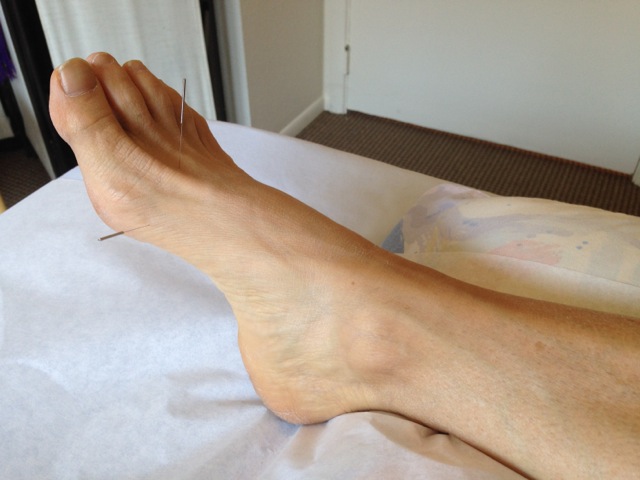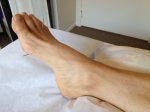Acupuncture for Anxiety and Stress
Scientific research supports the use of Chinese medicine and acupuncture for anxiety and stress relief.
Everyone
experiences anxiety and stress at some point in life. If these
emotions come and go like a mild wind they do not cause disease.
However,
chronic and strong anxiety and stress result in prolonged exposure to
powerful some of the most powerful neuroendocrine chemicals your body
produces, like adrenaline and cortisol. These can keep you awake at
night, upset your digestion or elimination, and cause aches and pains in
various parts of your body, particularly your neck and shoulders.
Prolonged
exposure to these chemicals may promote physical diseases such as
inflammatory disorders (e.g. dermatitis, eczema), circulatory disorders
(hypertension, heart disease), endocrine imbalances (e.g. hypothyroid,
diabetes type 2), and immune system disorders.
Stress, Emotions, and Dis-ease
Chinese
medicine has long recognized that strong or prolonged emotions produce
physical symptoms and disease. Anxiety generally results from strong
emotions affecting the heart and spirit. Symptoms of anxiety
include
* Heart palpitations or racing heartbeat
* Poor memory
* Insomnia
* Difficulty staying present
* Tendency to weep
* Discomforting sensations leading to frequent stretching
* Difficulty taking inhalation leading to frequent yawning
* Loss of appetite and indigestion
So you see, stress can cause imbalances in the functions (qi) of the heart, lungs, nervous system, and digestive system. Consequently, basic Chinese medicine or acupuncture for anxiety can improve health of the whole person.
Acupuncture for Anxiety and Stress
Acupuncture frequently provides immediate as well as long-term relief for anxiety. Some acupuncture points have dramatic anti-anxiety effect.
For example, one study of acupuncture for anxiety showed that acupressure at the point Yintang (Extra 1), located between the eyebrows, quickly reduced anxiety in children about to undergo endoscopic surgery.
Another study showed that acupuncture treatment provided relief from post-traumatic stress disorder (PTSD). This study compared acupuncture to cognitive behavioral therapy (CBT) and found that acupuncture provided a level of relief similar to CBT.
In my practice I find that acupuncture for anxiety and stress provides reliable relief. After 1 to 3 treatments, patients commonly report feeling calmer and clearer.

Chinese Herbal Medicine for Anxiety and Stress
Chinese herbal medicine can effectively treat stress, even in animals, demonstrating that the effects do not depend on belief in herbal medicines.
Herbalists trained in Chinese medicine have for centuries treated anxiety and depression with the herbal formula Xiao Yao San, also known as Free and Easy Wanderer Formula (FEWF). Wang et al tested the efficacy of FEWF in treatment of stress-associated behavior in rats. They found that an enhanced version of FEWF "possesses anxiolytic and cognition-improving effects and may be an effective herbal preparation for the treatment of stress-associated conditions, such as posttraumatic stress disorder (PTSD)." See Free and Easy Wanderer Plus (FEWP), a polyherbal preparation, ameliorates PTSD-like behavior and cognitive impairments in stressed rats.
Another study looked at the effect of Chinese herbal medicine on anxiety, stress, depression, and anger as part of premenstrual syndrome in women. The research showed that women who took herbal medicines for three months had significant reductions in their emotional distress compared to women who only took a placebo. See A controlled trial of Chinese herbal medicine for premenstrual syndrome.
Qi Gong / Meditation for Stress Relief
Mindfulness meditation provides one of the best remedies for stress. Zeidan et al assigned people to one of two groups, the first received four sessions of either meditation training and the second spent equal time listening to a recorded book. They found that both interventions improved mood but only brief meditation training reduced fatigue, anxiety, and increased mindfulness, and mindfulness training also enhanced visuo-spatial processing, working memory, and executive functioning. Find the abstract here.
You can follow these instructions to practice basic qi gong mindfulness meditation:
1. Sit in a quiet place with your back comfortably straight, your head and neck aligned with the spine. If possible, assume the half- or full-lotus posture on a cushion, because this posture provides the most stability. If you use a chair, have your feet flat on the floor and if possible make your knees slightly lower than your hips.
2. Gently close your eyes, or leave them slightly open and look downward toward the tip of your nose, or at a spot about 2 feet in front of you.
3. Place the tip of your tongue on the roof of your mouth just behind the front teeth. This completes the internal energy circuit of the body, enhancing meditation.
4. Gently rock your body side-to-side a few times to find the most stable center.
5. Bring your attention to the breath. Let the breath take its own course, make no attempt to change it. Simply watch the breath move in and out. Sometimes you will breath deeply, sometimes shallowly. Just observe it with full awareness, aware when it is deep and aware when it is shallow.
6. As you breathe, count each exhalation, starting with “1” and proceeding up to “9,” then resume at “1.”
7. During this meditation, thoughts will arise and pass. Whatever thoughts arise, simply observe them without getting involved. Let the mind think whatever it thinks, while you attend to your breath.
8. If your attention wanders and you lose your count, gently bring attention back to the breath, and resume counting at “1.” As you progress, you will find your concentration improving, your attention will remain steady for longer periods and you will know by the counting.
Start with 5 minutes daily. Gradually increase the length to 10, then 20, then 30 minutes daily, in small increments (5 min.), perhaps once weekly. Do not force longer sitting periods, but increase the length as you feel drawn to do so.
Go from Acupuncture For Anxiety to Conditions A-Z
Now seeing clients in person at:
The Retreat, LLC
7118 Summerfield Rd
Lambertville, MI 48144
Call To Make Appointment:
602-954-8016
Telemedicine:
602-954-8016
Acupuncture Toledo OH
Acupuncture Monroe MI
Recent Articles
-
Whole Foods Plant-Based Diet
Oct 02, 23 07:02 PM
Heal yourself with a whole foods plant-based diet. -
Acupuncture and Chinese Medicine | Lambertville MI, Toledo OH
Oct 02, 23 01:43 PM
Affordable acupuncture and Chinese medicine. Try Barefoot Acupuncture Clinic in Lamberville, MI. -
Regular acupuncture benefits rheumatoid arthritis patients.
Oct 31, 19 02:17 PM
A 2018 study published in Evidence Based Complementary and Alternative Medicine Journal found that clinical trials indicate that regular acupuncture over at least 3-12 weeks improves condition and qua… -
Acupuncture and herbal medicine reduce ringing in ears
Oct 30, 19 02:17 PM
"Acupuncture provides tinnitus relief. Luoding City Hospital of Traditional Chinese Medicine (Guangdong, China) researchers determined that acupuncture combined with the herbal formula Liu Wei Di Huan… -
Origin of "Barefoot Acupuncture"
Sep 28, 19 02:24 PM
Origin of "barefoot acupuncture" for our clinic name. -
Complementary facial rejuvenation session.
Sep 28, 19 01:35 PM
During the month of October 2019, receive a complementary facial rejuvenation treatment ($35 value) with any new patient or follow-up acupuncture treatment! Use this code to claim your free facial rej… -
Acupuncture as an alternative to opioids.
Sep 28, 19 01:29 PM
Conventional medical professionals have a growing interest in use of acupuncture instead of opioids for chronic pain. -
Acupuncture a 'Realistic Option' vs HRT for Hot Flashes
Apr 10, 19 01:50 PM
I have had many patients report less hot flashes with regular acupuncture. We also have Chinese herbal formulas that are very effective for controlling menopausal hot flashes and night sweats. Medscap… -
Chinese Herbal Medicine
Oct 31, 18 01:26 PM
Quality Chinese herbal medicine can help resolve a wide variety of conditions. -
Perception of Therapeutic Qi, a Nonmechanical, Nonpsychological Factor in Acupuncture That Originates from the Therapist
Oct 18, 18 05:00 PM
An interesting study indicates that people who have experience receiving acupuncture can distinguish between purely mechanical needling (no human contact with the needle) and human contact with the ne…

